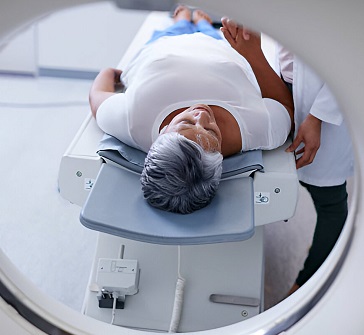 Book Appt.
Book Appt.
 Call Now
Call Now


Cancer arises when cells divide uncontrolled, destroying body tissue. Gynecological cancer is defined as cancer that develops in the reproductive organs. Gynecologic oncology is the study and treatment of tumors of the female genital tract. The term 'gynecological cancers' refers to a medical disorder in which cancer or tumor cells form in a woman's reproductive organs, including cervical cancer, ovarian cancer, uterine cancer, vaginal cancer, and vulvar cancer.
There are various symptoms connected with gynecological cancers; each cancer type has its own set of symptoms, and the only method to determine which type you have is to get a medical consultation. Gynecological cancers are among the top causes of cancer-related mortality in women globally. Lakhs of women are diagnosed with gynecological cancers each year; thus, it is critical to understand the many forms.
Symptoms
While gynecological cancer can present symptoms in its early stages, these are frequently overlooked because they mimic other prevalent illnesses. The earlier a cancer is detected, the easier it is to treat. To ensure an early diagnosis, share any unusual symptoms with your doctor as soon as possible. The signs and symptoms of gynecological cancer vary depending on the cancer type and organ involved. The most prevalent ones are:
Abnormal discharge or bleeding from the vagina.
Pelvic pain or pressure
Back pain
Bloating in the lower abdomen.
Uncommon or severe pain or cramping in the lower abdomen
Urination or bowel movements change
Infertility
Itching, burning, or color changes in the vulva
Abnormal lumps or bumps around the vulva
Pain during sex
Causes
Gynecologic malignancies develop when cells lining a reproductive organ alter and begin to grow and spread. Although research is ongoing, health experts still do not fully understand the cause of cancer. Genetics, exposure to certain STIs such as HPV, smoking, and environmental exposures all contribute to an increased risk of gynecological cancer.
Types
Gynecological cancer affects various parts of the female reproductive system, including cervical cancer, gestational trophoblastic disease (GTD), which can be cancerous but is usually not ovarian, fallopian tube, and peritoneal cancer, uterine cancer, vaginal cancer, and vulvar cancer.
Risk factors
Risk factors, or those that raise the probability of cancer, differ slightly for each form of gynecological cancer.
Experts know that the risk increases with age.
Hormone levels can also influence gynecological cancers. Excess estrogen exposure is significantly associated with the development of uterine cancer, whether it happens naturally or is given as part of postmenopausal hormone replacement treatment.
A family history of cancer is associated with some types of gynecological cancer, such as ovarian cancer and uterine cancer. In other words, having a close family member with gynecological cancer, such as a mother, aunt, or grandmother, may raise your risk.
The primary risk factor for cervical cancer is human papillomavirus (HPV) infection.
Other lifestyle and environmental factors that may increase the risk of cancer include:
Smoking
Excess alcohol consumption
Radiation exposure, such as through previous cancer treatment.
exposure to environmental toxins, such as heavy metals.
Overweight or obese
Prevention
Many gynecological malignancies can be successfully treated if detected early in their course. The most important technique for preventing gynecological cancer is to schedule regular checkups with your OBGYN or gynecology expert. Other useful things you can do to lower your risk are:
Getting the HPV vaccine ("Gardasil"), as advised by your doctor
Practice abstinence or safer sexual habits.
Maintaining a healthy weight
Not smoking or quitting smoking
Consult your doctor about hormone therapy options.
In rare situations, women who are at high risk for gynecological cancers (such as ovarian cancer due to family history or other causes) may choose to have elective, preventive surgery. A hysterectomy (removal of the ovaries) is one type of operation that may minimize the chance of developing cancer. Consult your doctor if you believe this is a good option for you. Visit at SHALBY Sanar International Hospitals in Gurugram.
SHALBY Sanar International Hospitals provides extensive medical procedures backed up with our state-of-the-art technology and a team of highly qualified & experienced clinical experts.

Grade 2 Endometrium Cancer | Ms. Robiyakhon | Uzbekistan | Dr. Archit Pandit | SHALBY Sanar

Male Breast Cancer Recovery Story | Dr. Archit Pandit | Cameroon | SHALBY Sanar

Ms. Nafisa’s Inspiring Breast Cancer Recovery | Dr. Archit Pandit | Uzbekistan | SHALBY Sanar International Hospitals

Stage4 colon cancer is curable - Colon cancer with liver metastasis | Kenya | Dr Archit Pandit

Patient from Kenya Treated by Dr. Archit Pandit | SHALBY Sanar International Hospitals

Double Cancer Victory: Mrs. Salma Kapoor's Inspiring Recovery Story | Dr. Archit Pandit

Patient from Uzbekistan Treated by Dr. Archit Pandit | SHALBY Sanar International Hospitals

Patient from Uzbekistan Treated by Dr. Archit Pandit | SHALBY Sanar International Hospitals

Successful Carcinoma Buccal Mucosa Surgery of a Patient from Nigeria by Dr. Archit Pandit

Successful Colon Cancer Surgery of Mr. Faraidun Kaka Bra Amin Amin's from Iraq | Dr Archit Pandit

Miraculous Recovery of a patient from Uzbekistan battling Ovarian Cancer | Dr. Archit Pandit

Successful Cancer Detection & Surgery by Dr. Archit Pandit | SHALBY SHALBY Sanar International Hospitals

Successful Colon Cancer Treatment of a patient from Iraq by Dr Archit Pandit | Surgical Oncology

Successful Glottis Mass & Carcinoma Vocal Cord Treatment of a patient from Iraq by Dr Archit Pandit

Successful Stage 4 Colon Cancer Treatment of a patient from Kenya by Dr Archit Pandit

Surviving the Odds: 56-Year-Old's Journey with Recurrent Carcinoma Vocal Cord | Dr. Archit Pandit

Surviving Recto-Sigmoid Cancer: Mr. Syamand Ahmed's Inspiring Journey

Success Story: Iraqi Patient's Liver Tumour Treatment at SHALBY Sanar International Hospitals

Cytoreductive Surgery Success: Iraqi Patient's 30cm Ovarian Tumor Removed Safely

Beating Liver Cancer: Mr. Abdirashid's Inspiring Story

Ms. Nejood's Success Over Pancreatic Cancer: A Remarkable Journey

Transforming Smiles: Revolutionary Buccal Commando Procedure

Wide Local Excision Surgery & Microvascular Reconstruction of a Cancer patient

Successful Surgery of Esophgeal Cancer

Successful Lung Cancer Surgery of Ms. Jerioth Wanjiru from Kenya

Para Thyroidectomy on Pt Jawad Kadhim Tweli from Iraq

Dr Archit Pandit discusses the fascinating case of Geeta Rani
Our doctors pen down their research findings and experiences from time to time. Their words provide deep insight into the latest techniques, technologies and other advancements in healthcare. It provides expert answers to all kinds of health questions for real-life issues.
VIEW ALL




Since the day of its foundation, SHALBY Sanar International Hospitals is committed to provide comprehensive healthcare services. It regularly organizes awareness programs in its premises and encourages outdoor healthcare activities and camps with an intent to put focus on preventive healthcare.
VIEW ALL